
Write It For Children
 I wish I could write novels that were difficult enough for children. Maybe one day…
I wish I could write novels that were difficult enough for children. Maybe one day…
Transformation!
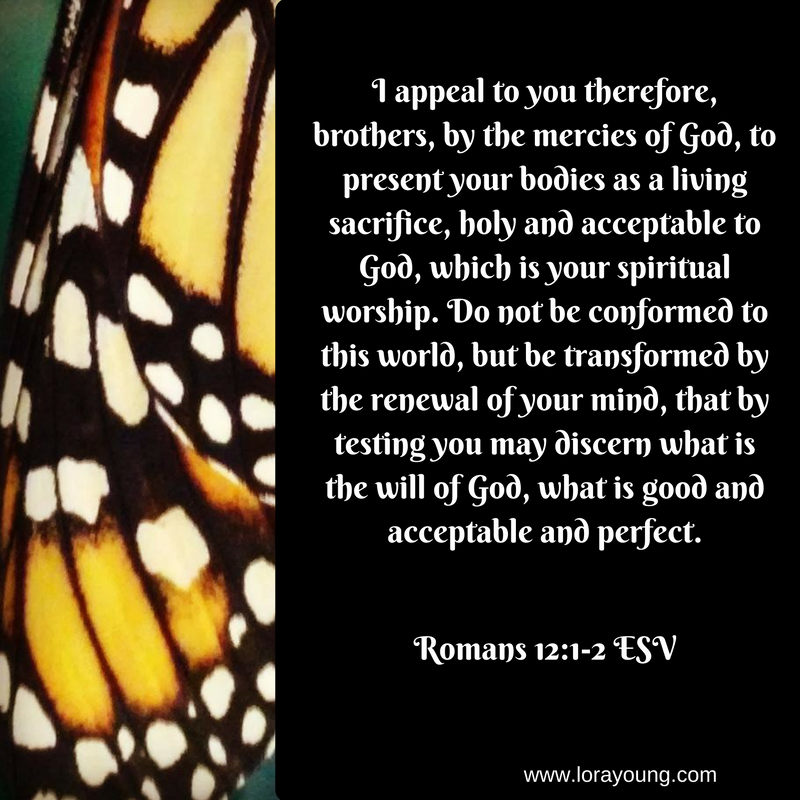 May I cooperate with God as He writes His Law on my heart.
May I cooperate with God as He writes His Law on my heart.
10 1/2 Tips for This Year’s Garden
 Last year was the first ever Young Family Garden. In the past, I’ve done the bulk of the day-to-day gardening by myself. Not a fun prospect. A few years ago, I even went on strike. My man and middle son tilled and planted and said they’d do all the rest…so I let them. I don’t think we got a single tomato. Now, I’m not bashing them. They both work full-time jobs and have all the rest of their chores to do. But something had to change.
Last year was the first ever Young Family Garden. In the past, I’ve done the bulk of the day-to-day gardening by myself. Not a fun prospect. A few years ago, I even went on strike. My man and middle son tilled and planted and said they’d do all the rest…so I let them. I don’t think we got a single tomato. Now, I’m not bashing them. They both work full-time jobs and have all the rest of their chores to do. But something had to change.
So, we (middle son, daughter, and their spouses) decided on a family garden. We made a schedule for taking care of all-things-garden. And it worked beautifully!
However, all six of us pooling our limited knowledge made for some interesting lessons.
So, here are my 10 ½ Tips for This Year’s Garden:
#1 Put hoops on the raised beds before planting. That way, when you get a heavy frost in late May (notice I didn’t say if), you’ll be able to cover the plants easily.
#2 No one in the family is a huge pickle fan, so four hills of cukes is plenty.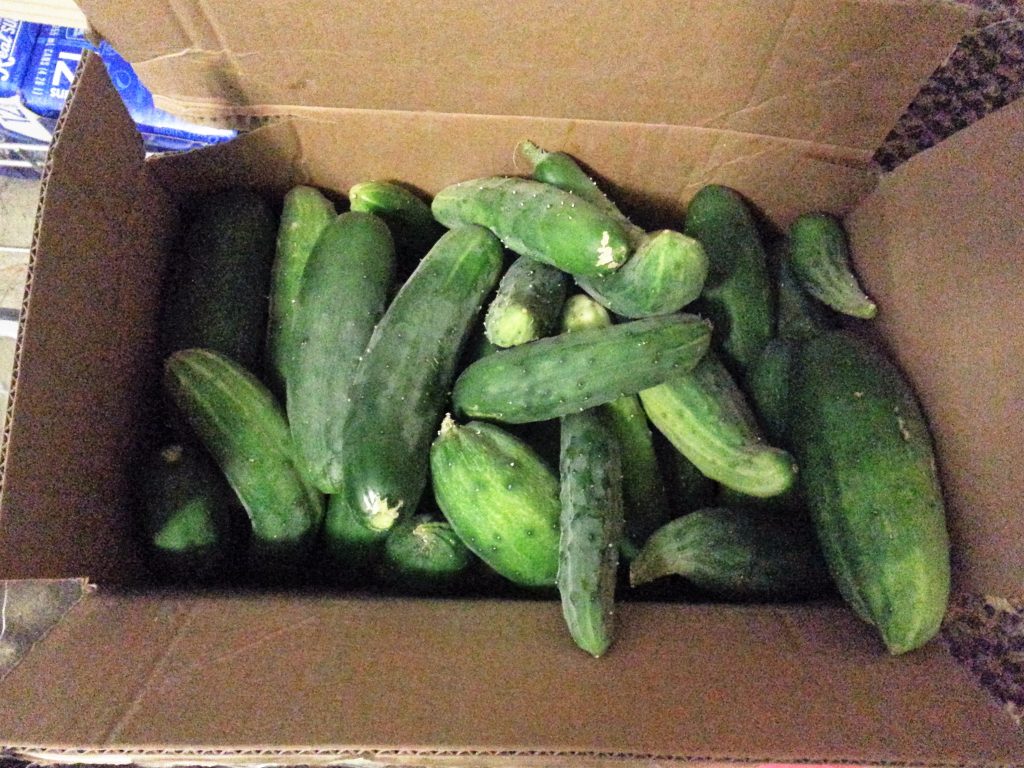
#3 Plant more Roma tomatoes. Table tomatoes aren’t very good for spaghetti sauce and that’s where most of our tomatoes go.
#4 Use colanders (from the $1 Store) to get the melons off the ground. It works! Setting them on tuna cans worked as well. We also tried straw. Blah! Don’t use straw. It degrades and molds. Yuck!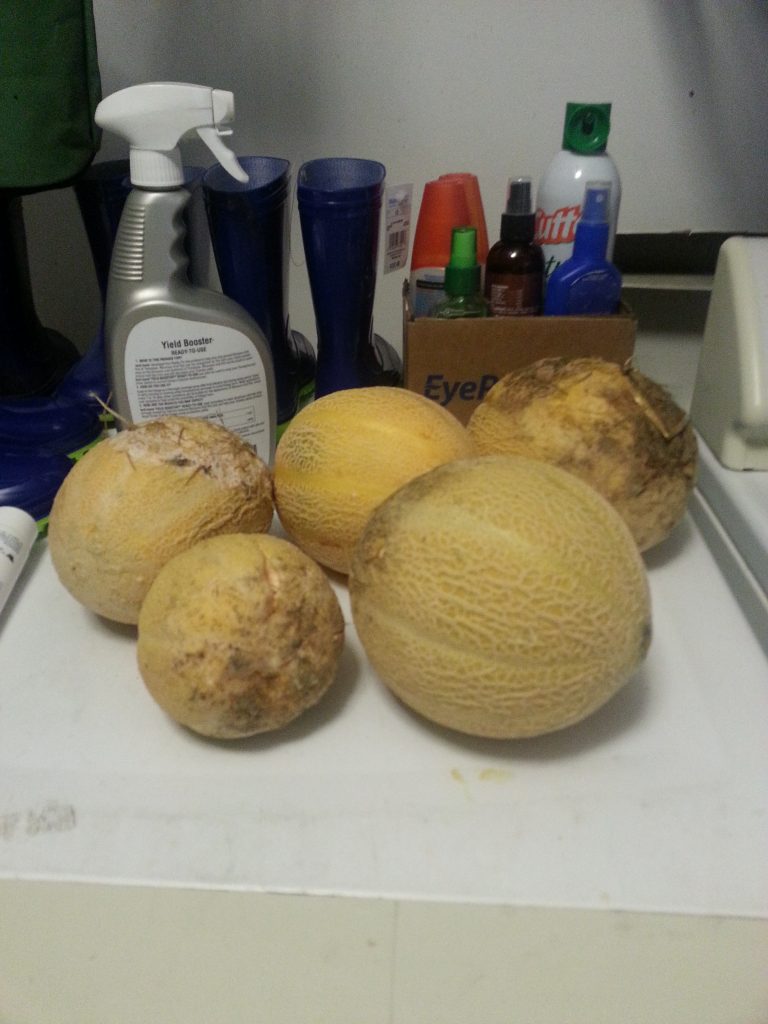
#5 Don’t put the sweet potatoes in a raised bed lined with landscape cloth. If you do, you’ll wind up with sweet potatoes growing up instead of down.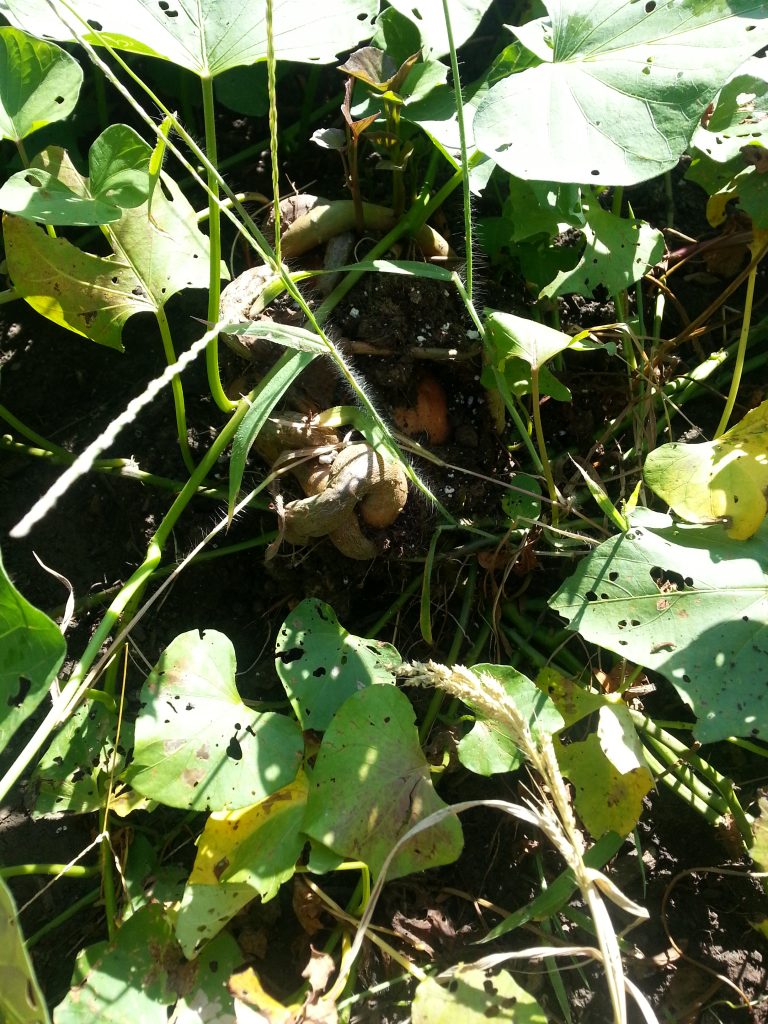
#5 1/2 One sweet potato vine produces a lot of potatoes. Pick when they’re small and “cure” them for storage. (Otherwise, you’ll get some the size of small children.)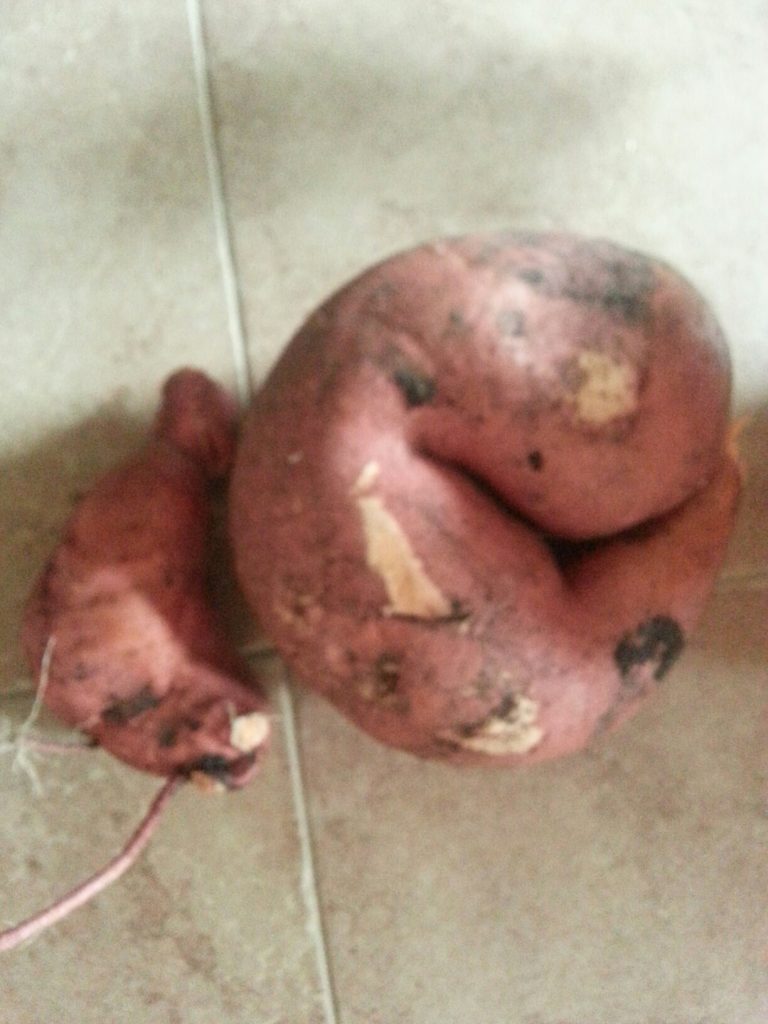
#6 Scuffle-hoe the puddin’ out of the garden two weeks after planting. That’s when the weeds are coming up and you’ll have a chance to kill them before they get too big.
#7 Mulch vine crops before the garden is a month old. Ideally, you should do this right after you plant, but if you’re like us, you’ll procrastinate.
#8 Give your green beans room to spread. They do super well in a raised bed as long as you space them correctly and/or thin them well.
#9 Cukes do amazingly on a trellis. I’d like to try trellises with other plants too. Melons and zucchini, maybe.
#10 Don’t go it alone. This family garden thing is a winning idea. Sort of like a CSA (Community Supported Agriculture) without the fees. The only children we had involved at all were my eldest son’s two—ages 7 and 5. They helped pick cukes, tomatoes, and strawberries. I was amazed at how very little they knew about where their food comes from. But they enjoyed picking, and I think they learned a few things.
I can’t wait for this year! (Wait! Did I say that? Yes. Yes, I did.)
One Thing
 My Do Something! post was my scary thing for this week. I’m not yet brave enough to do one a day.
My Do Something! post was my scary thing for this week. I’m not yet brave enough to do one a day.
Do Something!
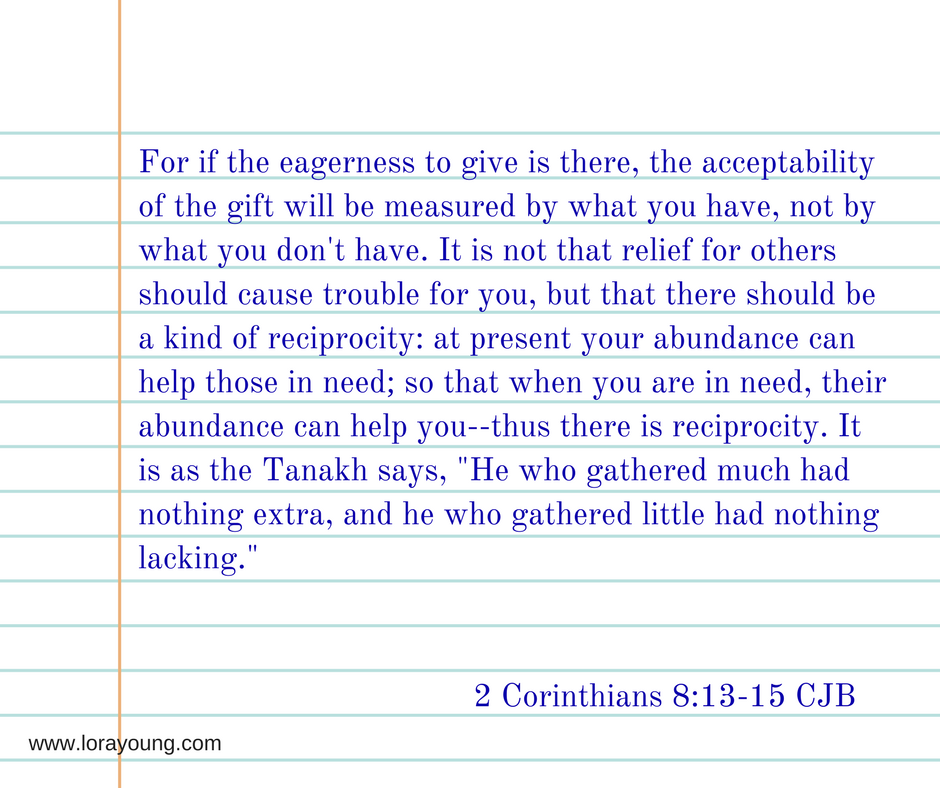
All the emotions stirred up by the news of the last few weeks just spilled over. I commented on a Facebook share of an article comparing the US’s barring the entrance of European Jews in the 1930s to the recent immigration “ban” signed by President Trump. This article was shared by a woman I deeply respect. Here’s my comment:
Sincere question. (I’ve been wanting to ask this of someone wiser than I for quite some time. Someone who wouldn’t skewer me for asking.) Where is the line? America can not take in every single Syrian refugee (in addition to all the refugees from other war-torn countries). There is a thought in Judaism that says we should give the 10% tithe and to help the poor and oppressed above and beyond that, but not to give more than 20% lest we impoverish ourselves and become dependent on others instead of being able to help. Isn’t America to that point (and perhaps beyond) now?
If one reads the news from other countries who have taken in unvetted Syrian refugees, one sees the enormous dangers to their citizens due to increased terrorism and simple cultural differences. (In every instance of ancient Israel taking in foreigners, the “refugees” were expected to conform to Israel’s laws. Not the other way around.)
Is it not wisdom to make sure the people who are asking to come in as refugees are *actually* refugees? Is there not another way to help these people than for the government to do it? Is there not a way for the Body of Messiah to help them in their own region?
Shortly after that, I ran across a post by Samaritan’s Purse asking for donations and volunteers to work with those fleeing ISIS in Northern Iraq. My husband and I both believed that was the leading of the Holy Spirit and donated. I so wish I had the medical skills they needed in their volunteers. I’d go in a heartbeat. So the question that’s been rattling around in my brain recently (actually, for years, but that’s beside the point) is, why is it that those in the Church seem so willing to let the government obey God for us?
When Jesus said to feed the poor and help the oppressed, he wasn’t taking to the Roman government. He was talking to his followers. Isn’t that what the Church is? How can the Church afford to build huge campuses, buy state-of-the-art technology, and hold massive conferences to make people feel better about themselves, but we can’t seem to feed the poor and help the oppressed?
There should not be a single person in our congregations taking a single dime from any government entitlement program. (Actually, if the Church had been doing as Jesus commanded all these years, there wouldn’t *be* any entitlement programs, because the Church would have been taking care of the poor and oppressed and the government never would have had a foot in that door.)
If we had made it a habit to take care of the poor and oppressed in our own communities, it wouldn’t be much of a stretch to extend that help to those in need around the world. But we haven’t. Instead we turn a blind eye, or worse, yell at the government to “do something!” Well, it isn’t the government’s job to do something. It’s the Church’s job. It’s Samaritan’s Purse’s job. My job. Your job.
So, do something!
Parashah 15 – BO
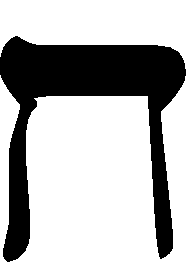 As part of my desire and (sometimes) practice to observe Shabbat, I’ve been reading the Torah Portions along with some trustworthy commentaries throughout the week and meditating on what I’ve learned on Shabbat. Parashah (Hebrew for “portion”) is a portion of the Torah and Haftarah is a portion of the Writings and Prophets sections of the Hebrew Bible that are read each Shabbat in synagogues all over the world.**
As part of my desire and (sometimes) practice to observe Shabbat, I’ve been reading the Torah Portions along with some trustworthy commentaries throughout the week and meditating on what I’ve learned on Shabbat. Parashah (Hebrew for “portion”) is a portion of the Torah and Haftarah is a portion of the Writings and Prophets sections of the Hebrew Bible that are read each Shabbat in synagogues all over the world.**
Simchat Torah is time in which the final portion of Deuteronomy is read and the scroll is rolled back to the beginning to start the readings over again. (I’ve written about my Simchat Torah experience here.)
This week’s Parashah is called BO (Hebrew for “go” or “come”): Exodus 10:1 – 13:16. It includes the Passover section of Scripture. When I came to the part where the Israelites were instructed to wipe the blood of the lamb on the lintel and doorposts of their house, I tried to picture that in my mind. (I *am* a writer, after all.) One of the other things I’ve been trying to do is to learn Hebrew. (Very ambitious, I know.) Anyway, it came to me that the shape made by the blood on the doorposts was in the shape of the Hebrew letter “chet.” I thought that was pretty cool.
One of the commentaries I read mentioned that very thing. After being all proud of myself for noticing it, I continued reading. In the days before Hebrew had vowel markings, the letter “chet” spelled the word life. So, the blood (which is the life of the animal) is put on the doorposts of the house to indicate to the death angel that the people inside have been obedient in trusting God’s words and following his commands and are therefore the recipients of life.
Likewise, our obedience to trust God’s words and follow His command to repent means that we have painted the doorposts of our hearts with the blood of our Passover Lamb which indicates that we are the recipients of life!
My heart overflows with gratitude to the One who made life my eternity.
Thoughts? Let’s reason together in the comments.
**You can read more about the Torah Portions at First Fruits of Zion’s website here. Please note that while I get a lot of good information from FFOZ, I’m not endorsing them or saying I agree with everything they teach. (I don’t know everything they teach, so I’m not going to give them a wholesale endorsement.)
Genesis 12:3
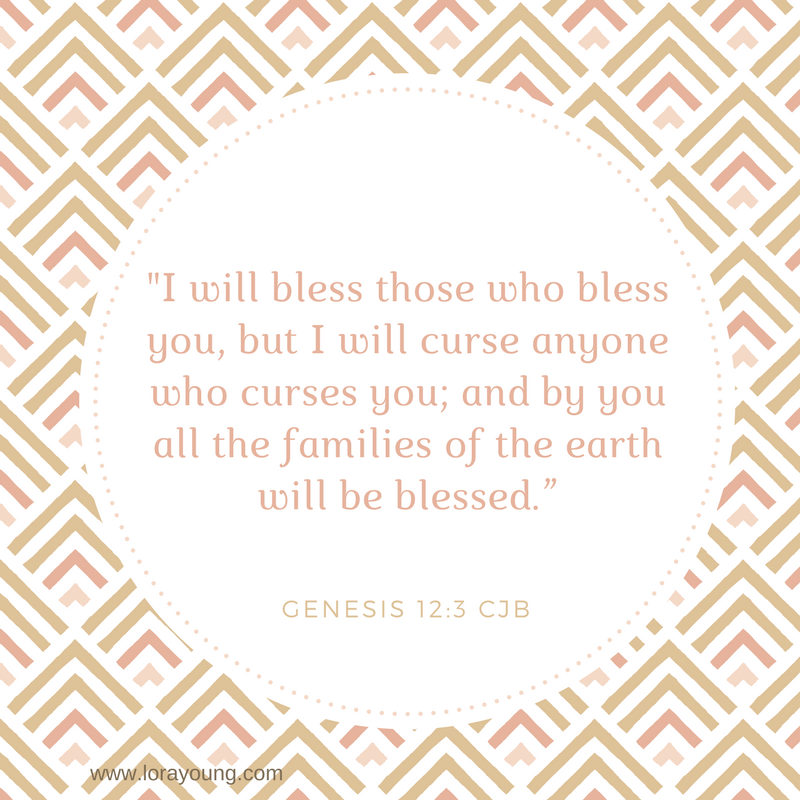
Merry Christmas!

Remember the Day
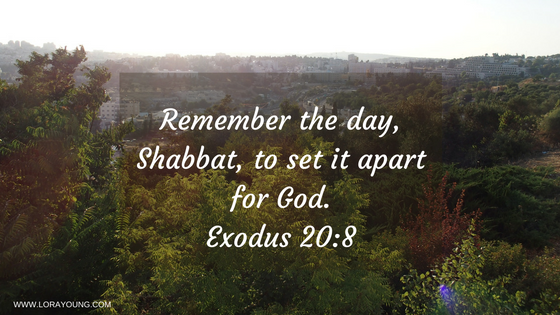 It’s quiet here this Shabbat morning. The windows are open and I can hear the rooster crowing and insects doing their thing, along with the occasional car passing by. I’m sitting in my glider with a cup of tea at hand and am pondering Shabbat.
It’s quiet here this Shabbat morning. The windows are open and I can hear the rooster crowing and insects doing their thing, along with the occasional car passing by. I’m sitting in my glider with a cup of tea at hand and am pondering Shabbat.
I’ve been on a Shabbat journey these past five months. In May, Bill and I made a once-in-a-lifetime trip to Israel where we experienced the holy rest of Shabbat for the first time. Since then, I’ve been making an effort to rest on Saturday. (Yes, “making an effort to rest” sounds like an oxymoron, but it takes conscious effort to change lifelong habits.)
Why Saturday? Because, although Sunday is the day I go to church, Saturday is the seventh day–the Sabbath.
A very wise woman suggested I figure out what “rest” means for me and start there. So I stay off social media and try to avoid the computer and internet entirely. (How am I writing this, you ask? By hand. And then I’ll transcribe it tomorrow.)
Observing a Sabbath rest has been enlightening in so many ways. First, having lengthy, dedicated times of study helps me go deep. I have no laundry to lure me away. No appointments to keep. No deadlines.
I read, nap, walk, visit with my husband. Sometimes I get to play with my grands.
Does it get boring? Sometimes. Around 4pm, I’m usually ready to jump back into life. But I’m ready.
Not dreading the new week.
Not weary.
I feel recharged.
Energized.
I feel more productive through the following week.
That I have more to offer.
My daily times of quiet–my teatime with Jesus–are snacks.
Shabbat? Shabbat is a feast.

